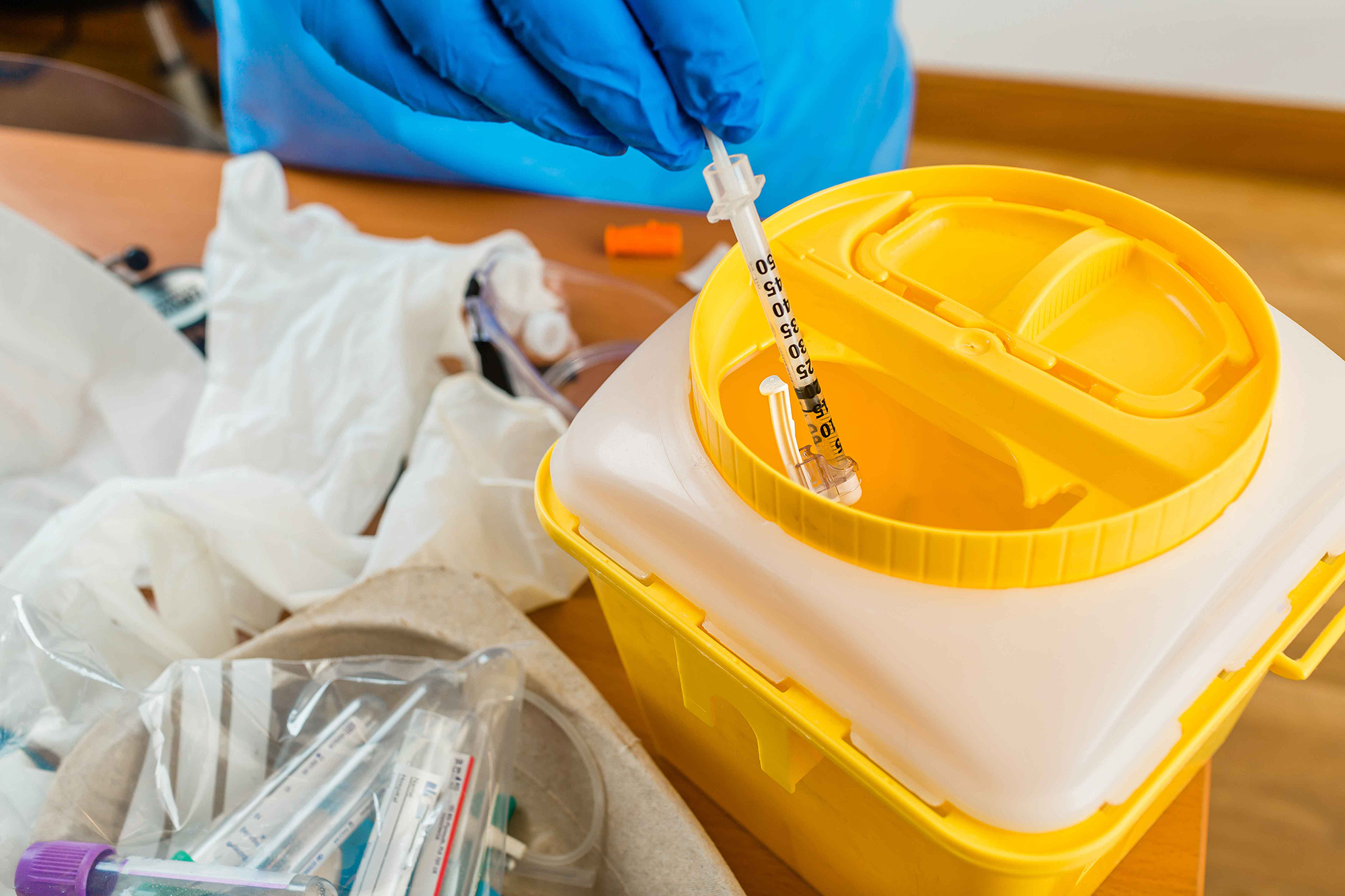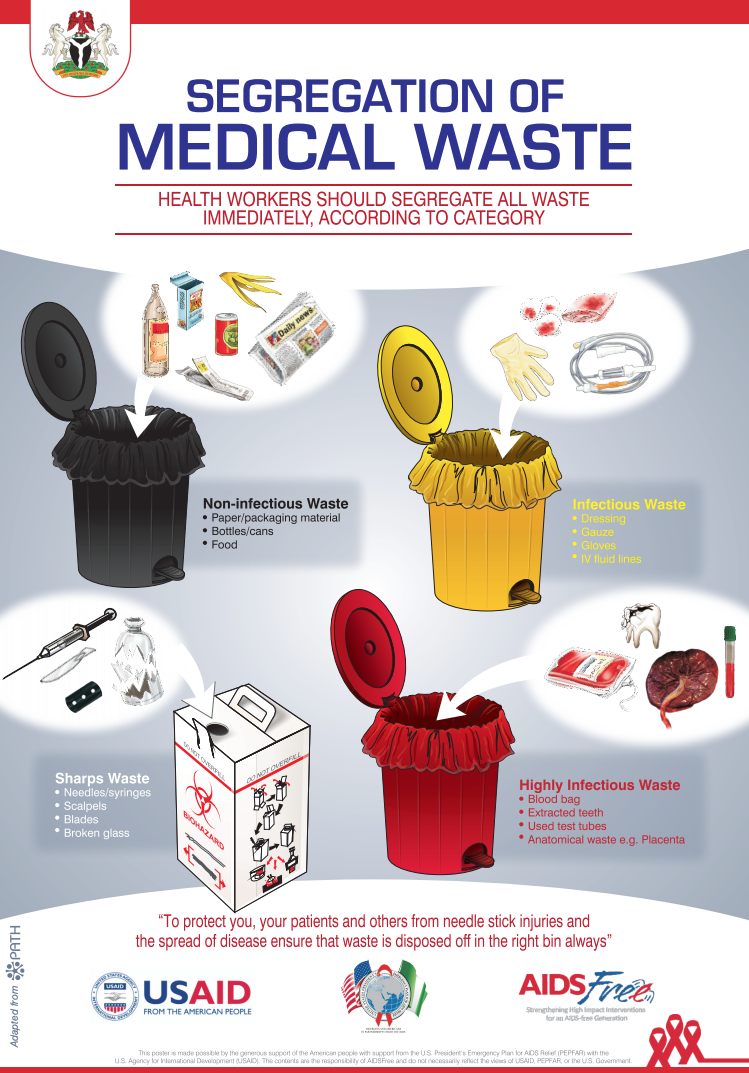Ideal Practices for Medical Waste Monitoring
Clinical waste management is an important aspect of health care centers' operations to make sure the safety of patients, staff, and the environment. Carrying out finest methods in clinical waste management is necessary to lessen the risks associated with harmful waste.

Partition and Classification
In the area of medical waste administration, proper partition and classification are important techniques for making sure the effective and safe disposal of healthcare-related materials. Clinical waste is created from different resources, including hospitals, centers, labs, and various other healthcare centers. It includes a vast array of items, such as needles, syringes, bandages, gloves, and pharmaceutical waste.
Segregation includes the organized splitting up of different types of clinical waste based on their qualities and prospective dangers. Sharps waste, such as needles and blades, should be put in puncture-resistant containers to prevent injuries and the spread of infectious diseases.
Classification is the process of categorizing medical waste into various categories based on its prospective risks. These groups might consist of infectious waste, contaminated materials, pharmaceutical waste, and general waste. By categorizing waste, health care centers can establish the proper disposal methods and guarantee compliance with neighborhood regulations and standards.
Appropriate segregation and categorization of clinical waste not only secure the health and security of healthcare workers and the public but additionally contribute to the overall efficiency and effectiveness of waste administration. It lowers the danger of mishaps, lessens ecological effects, and promotes responsible waste disposal methods.
Appropriate Storage and Classifying
To guarantee the safe and efficient disposal of medical waste, health care facilities have to comply with correct storage and labeling techniques. WasteX Medical Waste Disposal. Correct storage and labeling play an important function in preserving the integrity of clinical waste management systems and securing the health and safety of medical care workers, clients, and the public
When it comes to storage, it is necessary to have actually designated locations specifically created for various sorts of clinical waste. These locations ought to be protected, well-ventilated, and furnished with proper containers that satisfy regulative requirements (medical waste removal service). Segregation and classification of waste ought to additionally be considered to avoid cross-contamination and possible threats

Regular surveillance and inspection of storage areas and containers are vital to determine any problems or infractions. Personnel needs to be trained on proper storage and labeling methods, stressing the value of conformity with guidelines and protocols.
Safe Transportation and Handling
Ensuring the proper and safe and secure transport and handling of medical waste is important for maintaining the integrity of waste management systems and guarding the health and wellness and safety of all included. Medical waste, which includes things contaminated with transmittable products, drugs, and various other dangerous materials, have to be transported in a fashion that prevents leakages, spills, and possible contamination.
To attain risk-free transport and handling, several finest methods ought to be complied with. Initially, it is necessary to utilize puncture-resistant and leak-proof containers that are especially developed for medical waste. These containers must be properly sealed and classified to avoid any type of accidental direct exposure or mishandling. Furthermore, waste ought to be segregated based on its nature and type to stop cross-contamination.
Throughout transportation, it is essential to make sure that waste containers are firmly attached and saved in a stable fashion. Vehicles used for transferring medical waste must be outfitted with ideal security features, such as spill control systems, to decrease the risk of any type of leaks or spills. Drivers need to get training on appropriate handling and emergency action procedures to successfully attend to any type of unpredicted cases.
Additionally, the transport and handling of clinical waste must follow all relevant policies and guidelines stated by regional, state, and government authorities. WasteX Medical Waste Disposal. medical waste removal service. Routine evaluations and audits ought to be conducted to analyze conformity and identify any kind of areas for improvement
Conformity With Regulatory Guidelines
Keeping compliance with regulative standards is necessary for effective clinical waste monitoring. These guidelines are established to safeguard public health and wellness and the environment by making certain that clinical waste is effectively taken care of, treated, and disposed of. Conformity with regulatory standards helps to avoid the spread of contagious diseases, reduce possible dangers, and reduce the overall influence of medical waste on the atmosphere.
To achieve conformity, medical care facilities should remain educated about the certain regulations regulating clinical waste management in their jurisdiction. These guidelines may differ from nation to nation, and even within different states or areas. It is necessary for health care centers to have a comprehensive understanding of these standards and to execute ideal strategies and protocols to make sure conformity.
One key element of compliance is the appropriate segregation and labeling of various kinds of clinical waste. This consists of dividing sharps from various other waste, in addition to classifying waste based upon its possible dangers. Healthcare facilities should also guarantee that clinical waste is saved in proper containers and that these containers are effectively labeled and sealed.
In addition, compliance with regulative standards calls for health care centers to establish correct training and education and learning programs for team participants entailed in clinical waste management. This consists of giving training on waste partition, managing, and disposal treatments, along with the appropriate use of personal safety equipment.
Regular surveillance and audits are additionally essential to guarantee continuous compliance with governing standards. This includes carrying out routine assessments of waste storage locations, documenting waste management procedures, and keeping records of waste disposal.
Reliable Disposal Approaches
Health care facilities have to utilize efficient disposal approaches for appropriate management of clinical waste. Inappropriate disposal of clinical waste can position significant health and wellness and environmental dangers. There are several approaches that can be used to effectively dispose of medical waste, making certain the security of medical care workers, patients, and the basic public.
One frequently used technique is incineration. Burners can securely shed clinical waste at heats, decreasing the quantity and ruining any kind of potentially harmful pathogens. Nevertheless, incineration can be pricey and may launch damaging contaminants right into the air if not appropriately regulated.
One more technique is autoclaving, which entails subjecting the waste to high-pressure heavy steam. This procedure kills germs, viruses, and other microbes, rendering the waste secure for disposal in regular waste streams. Autoclaving is a reliable and eco-friendly method, however it requires specific tools and skilled employees.
Chemical disinfection is likewise used sometimes, where liquid chemicals are used to the waste to decontaminate it. This method is less typically utilized because of worries about the efficiency of chemical sanitation and the potential for chemical deposits to pollute the setting.
In enhancement to these methods, health care centers should likewise carry out correct segregation, product packaging, and labeling of medical waste to ensure its risk-free handling and disposal. Routine training and education and learning of personnel on correct waste management practices are vital to maintaining effective disposal methods.
Final Thought
Finally, applying best techniques for medical waste administration is important for guaranteeing the safety and security of medical care employees, clients, and the atmosphere. By correctly categorizing and setting apart waste, keeping and identifying it properly, guaranteeing safe transportation and handling, adhering to regulative guidelines, and employing effective disposal methods, healthcare centers can properly handle and reduce the dangers related to clinical waste. It is important for medical care organizations to prioritize and adhere to these best practices to keep a risk-free and sustainable medical care setting.
Medical waste management is a vital element of health care centers' operations to make sure the safety of clients, staff, and the setting. Implementing finest practices in medical waste administration is vital to reduce the threats connected with dangerous waste. These categories might include transmittable waste, dangerous waste, pharmaceutical waste, and general waste.In verdict, carrying out best methods for medical waste monitoring is click now crucial for ensuring the safety and security of health care workers, people, and the environment. By correctly classifying and segregating waste, keeping and classifying it correctly, guaranteeing safe transportation and handling, abiding with regulatory guidelines, and employing reliable disposal methods, health care centers can effectively manage and minimize the risks connected with clinical waste.